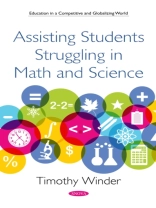Students struggling with mathematics may benefit from early interventions aimed at improving their mathematics ability and ultimately preventing subsequent failure. This guide provides eight specific recommendations intended to help teachers, principals, and school administrators use Response to Intervention (Rt I) to identify students who need assistance in mathematics and to address the needs of these students through focused interventions. The guide provides suggestions on how to carry out each recommendation and explains how educators can overcome potential roadblocks to implementing the recommendations.The recommendations were developed by a panel of researchers and practitioners with expertise in various dimensions of this topic. The panel includes a research mathematician active in issues related to K-8 mathematics education, two professors of mathematics education, several special educators, and a mathematics coach currently providing professional development in mathematics in schools. The panel members worked collaboratively to develop recommendations based on the best available research evidence and our expertise in mathematics, special education, research, and practice.The body of evidence we considered in developing these recommendations included evaluations of mathematics interventions for low-performing students and students with learning disabilities. The panel considered high-quality experimental and quasi-experimental studies, such as those meeting the criteria of the What Works Clearinghouse (http://www.whatworks.ed.gov), to provide the strongest evidence of effectiveness. We also examined studies of the technical adequacy of batteries of screening and progress monitoring measures for recommendations relating to assessment.In some cases, recommendations reflect evidence-based practices that have been demonstrated as effective through rigorous research. In other cases, when such evidence is not available, the recommendations reflect what this panel believes are best practices. Throughout the guide, we clearly indicate the quality of the evidence that supports each recommendation.This practice guide also aims to formulate specific and coherent evidence-based recommendations that educators can use to encourage girls in the fields of math and science. The target audience is teachers and other school personnel with direct contact with students, such as coaches, counselors, and principals. The practice guide includes specific recommendations for educators and the quality of evidence that supports these recommendations. We, the authors, are a small group with expertise on this topic. The range of evidence we considered in developing this document is vast, ranging from experiments, to trends in the National Assessment of Educational Progress (NAEP) data, to correlational and longitudinal studies. For questions about what works best, high-quality experimental and quasi-experimental studies, such as those meeting the criteria of the What Works Clearinghouse, have a privileged position. In all cases, we pay particular attention to findings that are replicated across studies. Although we draw on evidence about the effectiveness of specific practices, we use this information to make broader points about improving practice. In this document, we have tried to take findings from research or practices recommended by experts and describe how the use of this recommendation might actually unfold in school settings. In other words, we aim to provide sufficient detail so that educators will have a clear sense of the steps necessary to make use of the recommendation. A unique feature of practice guides is the explicit and clear delineation of the quality and quantity of evidence that supports each claim. To this end, we adapted a semi-structured hierarchy suggested by the Institute of Education Sciences.
Timothy Winder
Assisting Students Struggling in Math and Science [PDF ebook]
Assisting Students Struggling in Math and Science [PDF ebook]
Dieses Ebook kaufen – und ein weitere GRATIS erhalten!
Format PDF ● Seiten 238 ● ISBN 9781536137415 ● Herausgeber Timothy Winder ● Verlag Nova Science Publishers, Inc. ● Erscheinungsjahr 2018 ● herunterladbar 3 mal ● Währung EUR ● ID 6890211 ● Kopierschutz Adobe DRM
erfordert DRM-fähige Lesetechnologie












